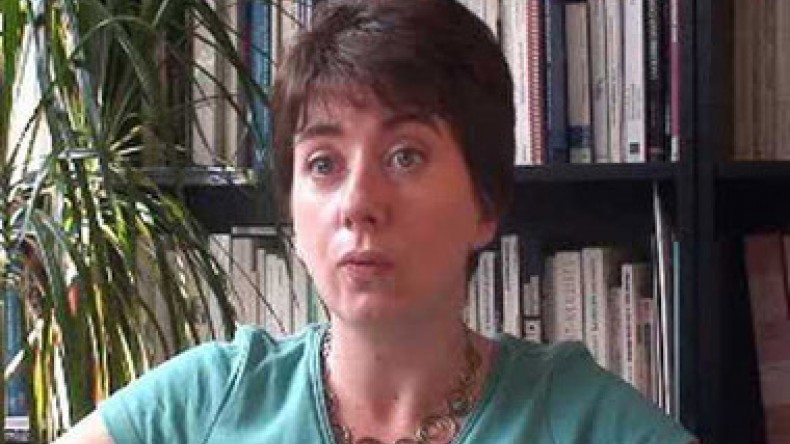
Laure Delcour: EU will remain engaged with Armenia, only modalities of this engagement will change
Panorama presents an interview with Dr. Laure Delcour – Senior Research Fellow at the Institute for International and Strategic Relations (IRIS), France. Dr. Delcour specializes in the EU policies in the post-Soviet area, the EU-Russia partnership and the European Neighbourhood Policy.
- Dr. Delcour, you have written extensively on the European Union’s policy towards Russia. Could you comment on the current EU policies as regards to Russia’s neighbourhood and in particular on the recent developments within countries like Ukraine, Moldova and Armenia?
- These countries are not only part of Russia’s neighbourhood; they have also been part of the EU’s neighbourhood since 2004 and 2007 enlargements. With the Eastern Partnership the EU has significantly upgraded its offer to partner countries. It offers association agreements, deep and comprehensive free-trade areas, the perspective of visa liberalisation subject to conditions being met, and enhanced sectoral cooperation. Nevertheless, EU policies require considerable efforts and costs on the part of partner countries, while they will be able to reap the benefits only in the long-term. In addition, the EU has only recently started to take into account the consequences of Russia-led regional integration initiatives and the effects of Russian policies (ie. Short-term benefits, but also strong pressure) on partner countries. The effects of Russian pressure may however turn out to be counter-productive and push some countries closer to the EU. So the key point is that this is a dynamic process. Joining regional integration schemes or initialling association agreement with the EU, as expected in the case of Moldova and Georgia at the Vilnius summit, is only the beginning.
- And if this is only the beginning then where are these countries ultimately heading – to a geopolitical alliance with EU/NATO?
- By saying only the beginning I meant that for these countries there is still a long way to go to fully implement the commitments that will be taken under the AA/DCFTA.
- The Republic of Armenia has recently announced about Armenia’s intention to join the Custom’s Union and few days later the European Commissioner for Enlargement and Neighborhood Policy Stefan Fule announced that it was no longer possible for Armenia to proceed with the Association Agreement. Where exactly does this incompatibility rest? Do you think these processes are incompatible in purely economic or rather in political (geopolitical) terms?
- The incompatibility is clearly in economic terms. It lies in deep economic integration that both schemes (the ECU and the Deep Comprehensive and Free Trade Agreements) propose. For instance, being a member of the two schemes would entail complying with, and applying two different external trade tariffs, which is of course impossible.
- How would you assess the future prospects of cooperation between the EU and Armenia after the recent developments?
- The situation is unprecedented and paradoxical. On the one hand, Armenia has already achieved considerable progress in adopting EU policy templates and approximating its legal framework with EU acquis in a number of sectors. This was indeed a EU pre-condition for launching DCFTA negotiations. On the other hand, given the incompatibility between ECU and DCFTAs, the EU will not initial the Association Agreement (of which DCFTA forms an integral part) with Armenia at the Vilnius Eastern Partnership summit. However, no doubt that the EU will remain engaged with Armenia, only the modalities and probably the scale of this engagement will change.
- How would you characterise the prospects of Russia-led Customs Union and the creation of the Eurasian Union?
Clearly, the Russia-led Customs Union differs from previous regional integration projects in the former Soviet space. The ECU is more ambitious. It is premised on a strong institutional framework including a supranational body and deep economic integration through regulatory convergence. However, there are several question marks as to the cohesion of this initiative. First, the extent to which member countries (currently Belarus, Russia and Kazakhstan’s interests are actually compatible. For instance, Kazakhstan had to increase its customs tariffs as a result of ECU membership. And second, ECU’s actual ability to attract new members. Armenia has just decided to join the ECU and Kyrgyzstan expressed an interest as well. However, the question is whether this interest in ECU membership is genuine or whether it results from external pressures.
- Dr. Rainer Lindner, Executive Director of the Committee on Eastern European Economic Relations, in his latest interview has expressed an opinion that the solution to the dilemma between the Custom’s Union and the EU can lie in the dialogue between Russia and the EU. How would you assess the prospects of such a dialogue?
- The dialogue between Russia and the EU is indeed critical to promoting security and democracy in the neighbourhood. The Roadmap on external security that was agreed upon in Saint-Petersbourg and launched in Moscow in 2005 provided for the strengthening of EU-Russia dialogue, and possibly joint initiatives, on crisis management and the settlement of regional conflicts, inter alia in those regions adjacent to the EU’s and Russia’s borders. Nonetheless, the EU-Russia dialogue on the common neighbourhood has been limited, to say the least. Now that Russia has launched the Customs Union, this dialogue is even more unlikely to develop. This is because Russia hopes to initiate an inter-regional, or inter-block, dialogue with the EU once the Eurasian Union is in place.
- Dr. Delcour, thank you for your comments.
Newsfeed
Videos






























